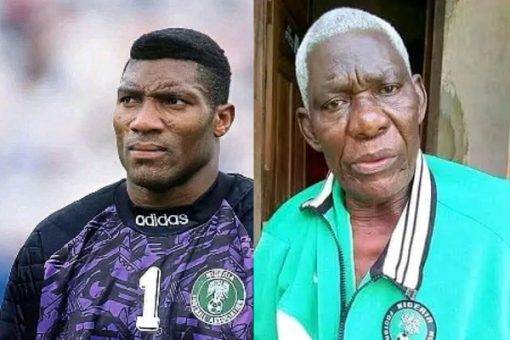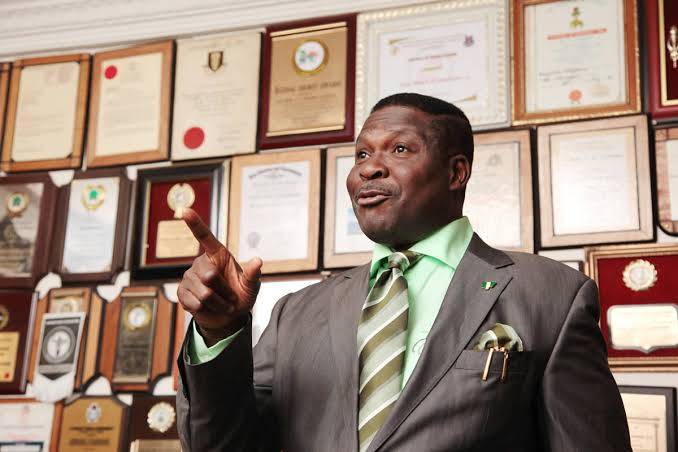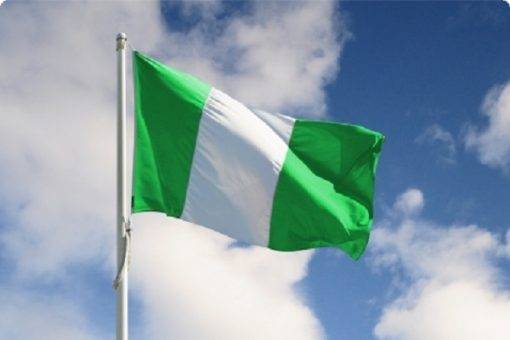By Olakunle Abimbola
Two Peters. Two parallel exploits. But both woven into a tapestry, securing each a seat in the Nigerian football Hall of Fame: Peter Fregene (17 May 1947 – 13 October 2024) and Peter Rufai (24 August – 3 July 2025).
One parallel is their Niger Delta and Lagos connects.
The one — Fregene — was born in Sapele (now in Delta State) but made his soccer hay in Lagos, ironically in two rival Lagos clubs, at the height of their swaggering, bragging and strutting rights: Stationery Stores FC (1967-1968) and ECN (later NEPA) FC (1978-1982). Though 10 years apart, he won the Nigerian Challenge Cup with both.
The other — Rufai — hailed from Lagos, though bred in Kaduna. But the crisis that preceded the Nigerian Civil War (1967-1970) saw Peter and doting mum bolting for the relative safety of Port Harcourt, his mother’s ancestral home.
There, at Port Harcourt, Rufai cut his first difficult tooth in football.
The finished work — more like work-in-progress — would make the paths of the two Peters to cross: the one a beloved mentor; the other the humble, dutiful mentee.
The Nigerian national team, across two generations, of Green and Super Eagles, would prove the net-gainer.
Peter (Fregene) the Cat. Peter (Rufai) the Rock. Both stuffs legends were made!
Another parallel: Stationery Stores and Eagles.
In 1968, Fregene was “cat” in the Stationery Stores FC of Lagos: a galaxy of stars that blazed the budding sky of Nigerian football, with their rich, arresting twinkle.
The list — 10 of the starting 11 — speaks for itself, particularly with Nigerian football history aficionados: Peter Fregene, Anthony Igwe, Augustine Ofuokwu, Olusegun Olumodeji, Samuel Opone, Willy Andrews, Peter Anieke, Fred Aryee, Olumuyiwa Oshode and Mohammed Lawal.
One of them, Anthony Igwe, would win gold with Nigeria at the 1973 2nd All Africa Games in Lagos — Nigeria’s first-ever continental silverware. Haruna Ilerika, aka “master dribbler”, joined Igwe in that golden team.
In 1970, Ilerika won the Lagos Principals’ Cup with the Zumratul-Islamiya Grammar School, Surulere, joined Stores in 1971 and broke into the national team from 1972. In 1976, when Nigeria won its first bronze at the African Cup of Nations (AFCON), in Dire Dawa, Ethiopia, Ilerika excelled in that team.
But this dazzling ensemble were only forerunners to the real deal, which climaxed in 1994. That year, Nigeria became a powerhouse in African football, clinching AFCON for the second time, posting a stellar showing at the USA ‘94 World Cup, and dazzling to Africa’s first Olympic gold medal in men’s football, in Atlanta ‘96, also in USA.
Back to the Fregene-Rufai parallel. When Fregene bossed the goal for Stores, it was at the club’s golden age of near-total hegemony, wrapped in sheer poetics of football.
Stores not only drew 2-2 with Brazil’s Santos FC of the great Pele — with the genius himself live at the Onikan Stadium, Lagos — the Green Eagles, then dominated by Stores players — nine of the starting 11 — also forced a draw against the Brazil Olympic team, at the Mexico Olympics of 1968.
But when Rufai met Fregene at the national camp in 1982, and humbly offered to clean Fregene’s boots, as other senior goalkeepers, there had been a cross-reversal.
Stores, which Rufai joined, were hardly the elite Israel Adebajo Babes of yore, beloved scions of a colourful millionaire owner. They had slid into “Pooku lowo e” — Yoruba for dirt cheap football plebs, but gritty for glory, adored and fired by fanatical fans!
In this relative “desert”, Rufai would start building own legacy as Peter the Rock.
Fregene himself was nowhere in sight in 1980, when the Green Eagles clinched their first AFCON title in style at home, with the late Best Ogedegbe and aging Emmanuel Okala aka Man Mountain, cradling the shots. It was a glorious win, destroying Algeria 3:0 in the final: a Segun Odegbami brace and a Muda Lawal icing on the cake.
But it was at the camp build-up to the Libya 1982 AFCON defence that the younger Peter met the older. Rufai fondly recalled how Fregene taught him the art and science — or even the metaphysics! — of reflexes: the spring, the dive, the jump to save shots.
That AFCON defence was doomed. Ghana won. But back was Fregene: the flying cat, with reflexes like springs, as sharp as ever, even after a 10-year hiatus.
Rufai in 1998 was the opposite, just four years after his imperious Mondial debut.
Year 1994: Nigeria were swaggering kings of Africa. The Eagles not only won AFCON away in Tunisia, they debuted at the World Cup, playing champagne football, next only to Samba-land, Brazil, the eventual winners. Rufai was central to that, as impregnable rock in goal. His apogee, it was!
But 1998 in France? Yes, Nigeria still pulled some strings, pipping heavy favourites, Spain, 3:2 in a five-goal thriller — Nigeria’s winner, a thunderbolt from Sunday Oliseh, tearing the net behind the legendary Andoni Zubizareta, and retiring him.
But retirement — at least from the national team — was also Rufai’s lot. In 1998, Rufai’s reflexes were all but gone. The Round of 16 4:0 drubbing from Denmark was no thanks to those flat reflexes, despite the showboating heroics of another imperious talent, Austine “JayJay” Okocha — so good they named him twice!
So, enter the last of the Peter-Peter parallels, though in contrasting terms: Fregene retired from the national team after the 1982 disastrous AFCON defence, though still with impressive reflexes. Rufai quit after France ‘98 with suspect craft, though the Eagles gave a fair performance.
But both legends were made: Fregene the Durable. Rufai the Charismatic. Legend!
Still, both cemented their place in history, basically on account of their exploits in local football.
Fregene never played abroad. Yes, Rufai moved abroad, earned more pay, garnered more fame and staked a claim to global renown. Still, nowhere abroad was anywhere near the “centre of the universe” in fan adoration and worship as he was in Stores.
He left Stores for Femo Scorpions — Femo who? — of Eruwa, Oyo State. Then, to Dragons de I’Oueme of Benin Republic — Dragon what? — as fanatical Stores fans would have scowled.
Well, in Belgium, Holland, Portugal and Spain, he never hugged such centrality that he enjoyed at home, though he earned far more coins, and did well for himself.
So, how might Nigerian football have turned out, had it bloomed to its full capacity, with these iconic Peters, among others?
Would Fregene have bowed to charity, to face old age infirmity, if the industry he had shaped with sheer excellence had grossed him enough cash to afford quality care?
Rufai too, ever private and dignified. Would he have died at 61 with lingering doubt that, even with his comparative better fortune, not enough was done to save him?
Two iconic players with contrasting fortunes but the same answer: far better than making hay abroad, develop your country for the great overall harvest.
But the government must birth the enabling environment for that to be.
Culled from The Nation














